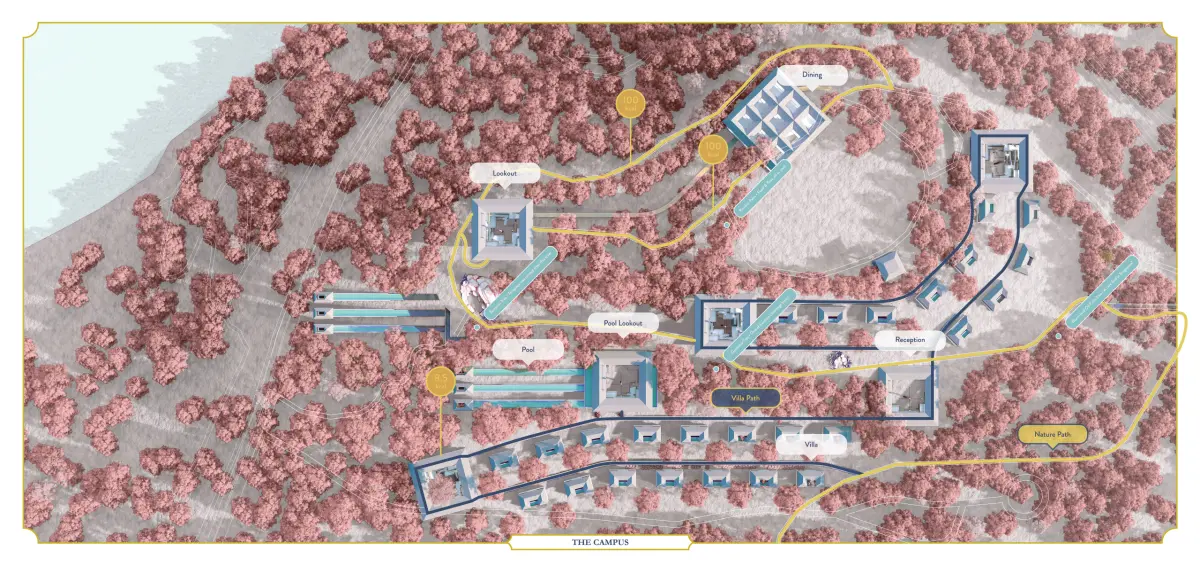
Campus Sentosa
BY Lim Si Yu, Ernest
SUPERVISED BY Adj Asst. Prof. Wu Yen Yen
STUDIO THEME ALTERNATE HISTORIES, PERIPHERAL ASSOCIATIONS
Abstract
As digital automation and telecommunication technologies become increasingly pervasive, work has begun its exodus out of the office and into all other spaces, from the the domestic sphere to places of pleasure. With this shift, not only has work been displaced from the office, but all spaces have been transformed, conditioning the worker to be productive in any space, and leisure has consequently become subsumed into one’s productive processes - sleep has become a process of recharging; exercise a means to improve one’s health; sociality an avenue for networking, etc. As these phenomena increasingly become reality, this thesis imagines the facades of leisure that work puts on in a hyper-productive world.
This thesis follows this thread of investigation, seeking to identify and illustrate the architectural possibilities of our increasingly productive world, where one’s thoughts, actions, and beliefs become tied to one’s professional identity. With the collapse of the Modernist tenets that supported a bygone era of the 9-5 workday, the project searches for a new type of architecture viewed through the lens of a fragmented space-time field, combining familiar architectural forms with wholly strange programmatic applications, in search of a new language of architecture - one that is suitable, relevant, and thought-provoking to the modern worker.
Sited on the island of Sentosa, a place of pure, unadulterated pleasure, Campus Sentosa exploits the constructedness and artifice of leisure in Singapore today. Designed a corporate resort targeted to the modern knowledge worker, the project aims to recontextualize these pleasure spaces as sites of productive leisure, thereby renegotiating the narratives of leisure in a society where one’s value and identity are so intrinsically tied to their work.
Supervisor Comments
The insidious creep of work, now often cloaked as productivity, is leading to a near-complete erosion of leisure as we know it. Ernest’s thesis project probes at how, in a knowledge-based economy, work has infiltrated beyond the somatic and become an auto-script constantly pushing us to keep fit, present an image of competency, have varied lived experiences, be well-networked, purvey obscure information etc.; culminating at an endless cycle of self-betterment we believe we need as working professionals. In Ernest’s resort, spaces are designed to entice, distract with trappings that tell us continually we need to be better, plugged in and productive at all the times. Through his scarily alluring mirror, he demonstrates how many familiar architectural scenarios, some seen even as luxurious work-spaces, and our having been drawn to them, renders true his proposition that architecture is culpable in this productivity complex.
- Adj Asst. Prof. Wu Yen Yen